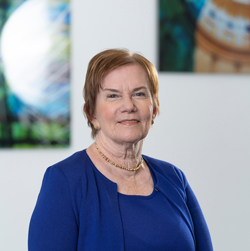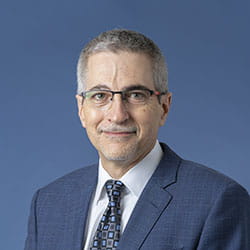Hospital Spotlight: Denver Health
America needs socially responsible hospitals, and many hospitals all over the country are rising to the challenge. The Lown Institute Hospitals Index–the first hospital ranking to evaluate hospitals on 50+ metrics across health equity, value, and outcomes–honors hospitals that are leading the way on social responsibility.
With our new Hospital Spotlight blog series, we’re diving deeper into the performance of top hospitals and interviewing hospital leaders to find out more about the initiatives and practices behind their success.
Our first Hospital Spotlight features Denver Health. Denver Health is ranked #10 in the nation, one of only 66 hospitals with straight As across the three main categories of Equity, Value, and Outcomes. Its performance has been strong and steady, maintaining good grades over many years and solidifying itself as one of the premier healthcare centers in the country. Ranked first in the state of Colorado, Denver Health is an academic, safety net hospital in an urban setting.
We spoke with Donna Lynne, DrPH, the new Chief Executive Officer of Denver Health, as well as Tom Mackenzie, MD, MSPH, the Chief Quality Officer, to see what they’re doing right and where they’d like to progress.
Lown Institute: Denver Health’s ranking on the Lown Hospitals Index is impressive – what are some of the factors behind your success?
Tom Mackenzie, Chief Quality Officer at Denver Health: It comes down to the culture we’ve built. We have a long history of commitment to community and high-quality care for everyone, including underserved populations. It’s attracted a workforce similarly committed to the mission of the highest quality, most compassionate healthcare to all of our patients.
Donna Lynne, Chief Executive Office of Denver Health: Absolutely, our staff is our secret to success. Our staff is overwhelmingly intentional about working at Denver Health and staying because of the populations we serve. We’re a safety net hospital, so 50% of our patients are Medicaid and around 11% are uninsured. When you think about that population, it’s already presenting with socioeconomic diversity. That makes us very different from other hospitals in the area.
Lown: How has Denver Health approached the staffing shortage and burnout?
Lynne: The Denver Health mission is to be the healthiest community in the United States, and that starts with our own staff and their wellbeing. We have a program called RESTORE (stands for “Resilience and Equity Through Support and Training for Organizational Renewal”) where staff can come to a center at the hospital to relax, have some coffee, and talk to a counselor if they want. So far the program has been very successful, with over 100,000 visits since its inception in August 2021.
Mackenzie: Right now people are feeling burned out. Healthcare has been taking a hit over the past couple of years, so this is a very high priority for us as an institution.
Lynne: It’s hard to recruit staff to a workplace that’s not safe, so we’ve created a committee on workforce violence to address staff safety. We’ve held a lot of events to meet with employees; I would say I’ve talked to 2,000 employees in the first two months. We want to acknowledge the work that they’ve done, especially through the challenges of COVID.
Lown: How do you measure and track your performance around the quality of care?
Mackenzie: We’re a very metric-driven institution. It’s important that our workforce feels a sense of pride in their work, so we want our performance metrics to be readily available to our workers – they need to have a line of sight to our performance to feel like they have the power to improve our metrics. We have something called “Target Zero,” which is a measure of adverse events at the inpatient level. We have a raw count of events like blood clots and falls, and by making this data accessible our people are able to connect to it and explain it quickly. That deep connection with accountability is valuable, it gives each employee the sense that there’s something they personally can do to help prevent this.
We’ve also tried to automate preventative health programs like cancer screenings and immunizations as an upstream attempt at improving health. By having a medical assistant schedule these things automatically, it reduces the administrative burden on our other staff as well. Metrics give useful feedback at an individual level too, not just the clinic level. And none of us here are used to being on the low end of a grading scale. Make sure you have measures of performance in front of people in a consistent way that speaks to individuals. You want things to be as easy to do as possible – that’s a powerful way to drive improvement.
Lown: Denver Health earned an “A” in Community Benefit Spending. What programs or initiatives are you particularly proud of?
Lynne: Something I’m proud of is that we’re at every high school in Denver. We’re working on health education and preventative health at the same time. Students can walk in with depression and we’ll get them help from our behavioral health team, or they’ll walk in with sexual health questions and we provide counseling. We can help them access immunizations, birth control, and a lot of other resources so that the next generation in Denver is healthier than the last.
Lown: If you could wave your magic wand and access any and all data possible, what do you wish the Lown Index could measure about your hospital’s performance?
Mackenzie: What’s sometimes missing from public reports of performance is the 4th part of the quadruple aim – employee engagement or clinician joy. There’s an opportunity there for measurement. We would expect to see alignment between a happy, engaged workforce and quality. It would be great if external bodies could give insight on that.
Lynne: I’d like a measure of the societal impact of safety net hospitals. It would be useful to show state and local officials that we provide a service to the community that allows them to have a vibrant economy and healthy community members.


